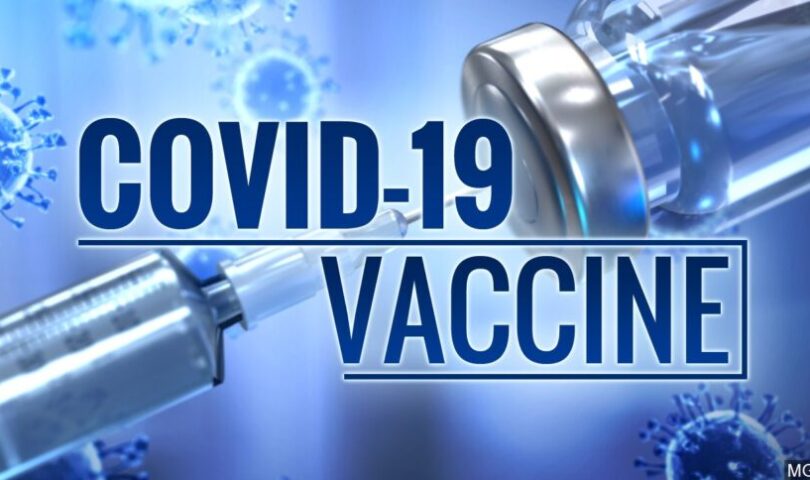A COVID shot reformulated for variants circulating this summer could be on its way to Michigan as soon as this week after it was green-lit by the U.S. Food and Drug Administration Monday.
The FDA approved newly formulated vaccines by Moderna and Pfizer for people who are 12 and older. Under its emergency use authorization powers, the FDA also gave the okay for boosters for infants six months and older through age 11.
SPONSOR
Subject to expected Centers for Disease Control and Prevention sign-off on Tuesday, that means anyone 5 years or older — whether or not they’ve previously received the COVID vaccine — are eligible to receive a single dose of the new shot, as long as it has been at least two months since the last dose of any COVID vaccine.
Children six months through four years old, who received previous COVID vaccines, will be eligible for one or two doses of the updated mRNA COVID-19 vaccine, depending on the timing of their last COVID vaccines. Unvaccinated children in that same age group are eligible for three doses of the updated authorized Pfizer-BioNTech booster or two doses of the updated authorized Moderna booster.
The vaccine’s rollout faces a final hurdle Tuesday, when vaccine advisors to the U.S. Centers for Disease Control and Prevention meet to determine exactly who should get the booster and when — a decision that usually mirrors the FDA’s decision.
If CDC advisors offer recommendations as expected, this will be the first winter that Michiganders will have vaccines for each of a trifecta of respiratory misery: flu, COVID and respiratory syncytial virus, or RSV.
What isn’t known is how well the new COVID booster will protect against future versions of the virus, or against BA.2.86, which was detected in Michigan last month. Early lab tests suggest the vaccine will remain effective.
While they are being called “boosters,” the new vaccines are really new formulas, designed to protect against XBB.1.5, one of the variants descended from the omicron variant that fueled a deadly COVID surge in 2022. But COVID mutates routinely, and has morphed with a slew of other variants, including EG.5.1, dubbed Eris and FL.1.5.1. or “Fornax.”
Last month, Michigan was the first U.S. state to report a case of BA.2.86, or “Pirola.” The variant is particularly worrisome because the genetic building blocks of the variant’s spike protein — the virus’ key to entering human cells — are significantly different from previous versions of the virus.
That initially triggered concerns that it might dodge vaccine protection. But the drugmaker Moderna last week announced that its vaccine is effective against BA.2.86, and Pfizer, in its statement Monday, said lab tests show its vaccine also neutralizes BA.2.86 and EG.5.1.
The new vaccine is a “good match” against those variants, the FDA suggested in its own announcement Monday, suggesting the booster’s continued effectiveness.
Ultimately, it’s not clear that BA.2.86 would have had enough of a punch to overcome other variants anyway, epidemiologist Emily Toth Martin, part of the University of Michigan effort tracking COVID and other respiratory diseases, told Bridge Monday.
Early testing, she said, suggests that BA.2.86 “may not have the transmissibility to outcompete current variants that the booster was designed around.”
What’s happening with COVID now?
The virus behind COVID-19 has now been linked to nearly 39,000 deaths in Michigan. But it has lost its deadly edge for the most part, and it appears to have settled into seasonal rhythms as expected, much like the flu and RSV.
“Barring the emergence of a markedly more virulent variant, the FDA anticipates that the composition of COVID-19 vaccines may need to be updated annually, as is done for the seasonal influenza vaccine,” according to the administration’s Monday announcement.
In Michigan, cases and hospitalizations have been increasing in recent weeks, although they remain low overall.
Four years of infection, coupled with vaccines, has built herd immunity against the virus, doctors previously told Bridge. That means young, healthy people probably aren’t going to be seriously ill from an infection if they get one, doctors have also said.
But that also means those same people who may be symptomatic or only mildly ill can become vectors of the virus to more vulnerable people — grandparents, a friend fighting cancer, or the chronically ill person at the grocery store, for example.



